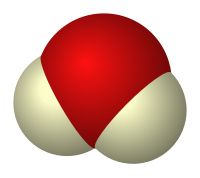
Photo from wikipedia
Abstract Objective Characterization, in vitro evaluation of antioxidant activity and ex vivo investigation of cytotoxic effect of phytosomes assimilating ethyl acetate fraction fractionated from hydro alcoholic extract of Cedrus deodara… Click to show full abstract
Abstract Objective Characterization, in vitro evaluation of antioxidant activity and ex vivo investigation of cytotoxic effect of phytosomes assimilating ethyl acetate fraction fractionated from hydro alcoholic extract of Cedrus deodara bark. Method Solvent fractions of hydro alcoholic extract were analyzed by HPTLC to identify taxifolin, using toluene: ethyl acetate: formic acid (04:38:06) as mobile phase. Phytosomes of ethyl acetate fraction were prepared with antisolvent precipitation method and characterized by particle size analysis, entrapment efficiency, DSC, IR spectroscopy and partition coefficient. Phytosomes were screened for in vitro antioxidant activity and concentration exhibiting highest antioxidant activity was reinforced ahead for evaluation of ex vivo anticancer investigation by MTT assay and TB assay using MCF7 cell lines. Result Owing to identification of taxifolin (Rf=0.61) in ethyl acetate fraction during HPTLC, it was utilized further for complexation. Oval shape, particle size (544 nm), zeta potential (−28.1) and polydispersity index (0.141) of PC3 phytosomes concluded about characterization of the complex. Entrapment efficiency (75.40 ± 0.53%) and partition coefficient (0.89 ± 0.91) of PC3 phytosomes was higher as compared to PC1 and PC2 complex, therefore, PC3 was evaluated for ex vivo studies after DSC and infrared spectroscopic evaluation. PC3 phytosomes (100 mg/mL) exhibited highest antioxidant activity (P Conclusion Present study reveals about in vitro antioxidant assay guided ex vivo investigation of cytotoxic effect of ethyl acetate fraction and phytosomes of taxifolin-rich fraction extracted from Cedrus deodara bark.
Journal Title: Journal of Drug Delivery Science and Technology
Year Published: 2021
Link to full text (if available)
Share on Social Media: Sign Up to like & get
recommendations!